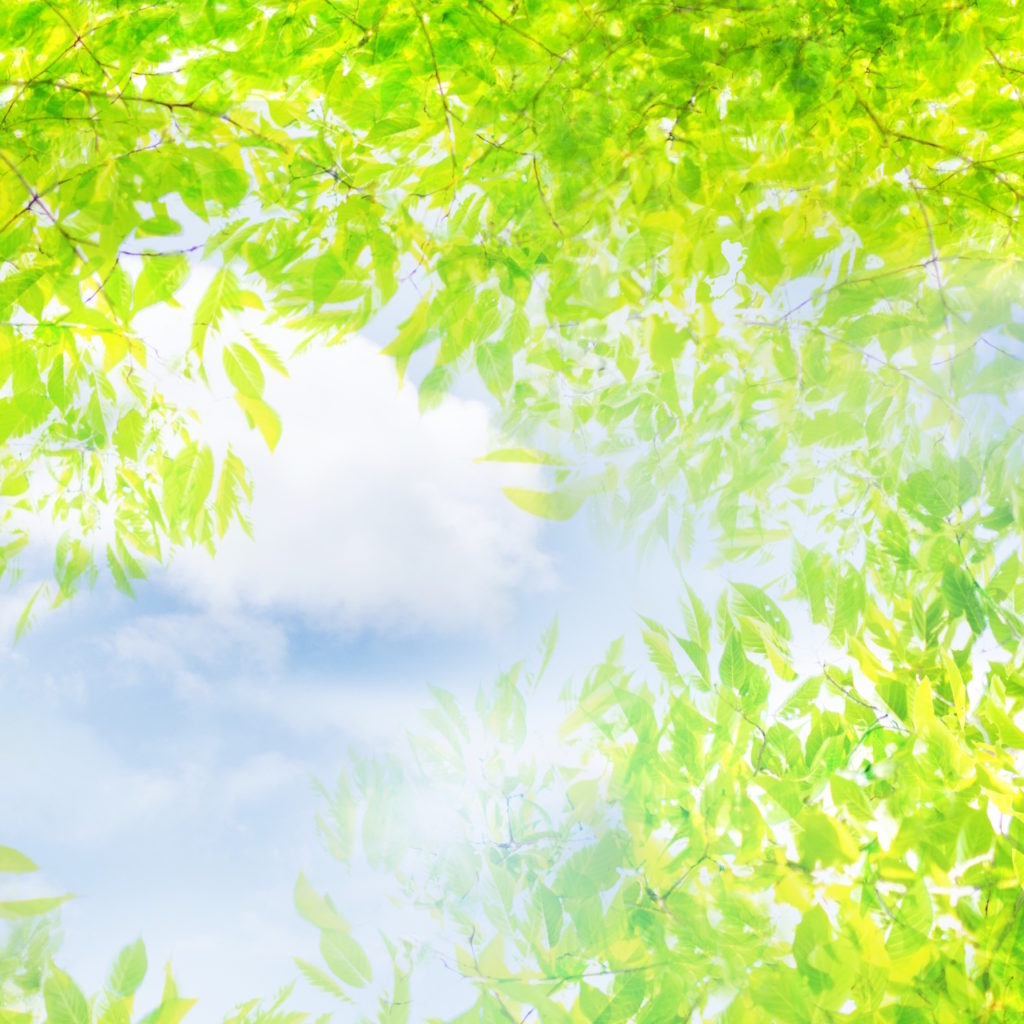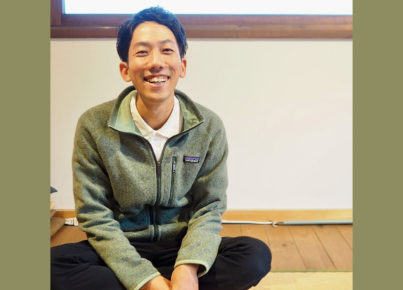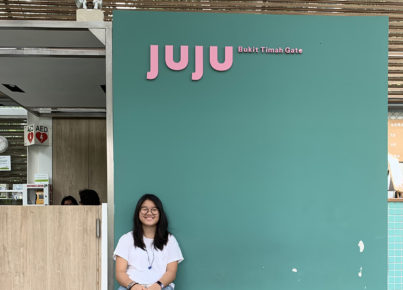“Looking Back at Our Future”
Mark Ulysis I. Romulo
University student (Department of History and Philosophy)
Philippines

The COVID-19 pandemic has greatly transformed the individual and community situations of people across the world. The ease of transmitting the disease, varying demographic risk factors, as well as an unprecedented global media campaign to put both the causes and effects of the disease front and center has made high the costs of the disease to both individuals concerned for themselves or their loved ones and the public-at-large. Problems of public health and disease control have been pushed to the forefront even as significant economic losses have been inflicted upon many members of the public who would otherwise remain healthy and uninfected and yet suffer acutely alongside those who are subject to medical attention and confinement. Strict and exacting public health and safety protocols, as compared to what had been in effect before the pandemic, has made life difficult and unbearable for many, whether through the sudden narrowing of financial capabilities and prospects or through the personal pain brought about by the incapacitation or loss of loved ones as a result of the disease.
As for myself, while me and my family remain fortunate enough for not having been afflicted by the disease, its effects on our lives remain acute and potent as it is. Like many in our own country, the Philippines, the slow relaxation of public safety guidelines has given way to still many restrictions and requirements on the part of reopening private firms and entities. Once vibrant and busy streets have become much less so as many among us opt out of appearing or interacting physically to conduct our activities, especially among the children and elderly segments of the population. School and work activities, for myself and most others around me, have shifted over to using virtual spaces in order to continue functioning safely. For the less fortunate, audio-visual methods of transmission such as one-way radio or television, non-Internet based methods such as two-way radios and SMS, and written response methods such as modular learning, remain the norm for the foreseeable future until such time that a return to large-scale physical interactive spaces becomes feasible.
While lamentable for many, certain effects of the pandemic remain salutary and helpful with respect to the innovations brought about as a result of the challenges posed by the pandemic as well as the responses emerging as a result of such. It can be said that the pandemic has accelerated the trends of virtualization with respect to the economy and social life, with the rapid increase in individual and community costs if traditional means of economic and social life remain inflexible and unadjusted. We have had to become more connected and wiser to technology, if only to restore some semblance of normalcy to the radically changed world. From online classes to virtual parties, many activities once considered primarily the domain of the socio-physical setting have made the uneasy, uneven, transition to the virtual world and yet one would expect that in a post-COVID world such trends would continue and thrive even alongside a near-total restoration of pre-COVID norms and activities given their utility independent of pandemic conditions as well as the ease and reach with which they have become embedded into the public consciousness.
Among the most significant themes and lessons that still remain with me since TYCA is the importance of sustainability, specifically man’s sustainable relationship with nature and the rest of society, the value of technology in improving the lives of people across the world, and the significance of such innovation in making sustainable living possible for people. In the face of the current crisis, it has become ever more important to consider the importance of such lessons especially as our communities start planning ahead and moving past the era of COVID. At a global scale, the crisis has shown to us and many other communities in the developing world how vulnerable we are to the tumults and crises of a globalized economy, where we cannot hope to compete effectively on the world stage against the developed nations when it comes to acquiring sufficient necessities for our people, whether for reasons of health supplies, food security, financial assistance, among many other concerns. At a local level, we see such disparities in our own communities wherein far-flung or depressed areas simply cannot provide adequate and quality support for the already burdened people locked out or diminished by the prevailing conditions. It has thus taught once again to many of us about the need for sustainability not only in terms of the environment but also in terms of our economies and technologies.
As TYCA alumni, we must also be cognizant and realistic of our own abilities and limits. Doubtless, many of us may still hold the hope that one day we may still make a significant impact on our societies by introducing and promoting practices or technologies acclimated to our specific social and economic conditions, but also awake to face the realities of prioritizing the survival of ourselves and our loved ones in the here and now and as well as the foreseeable future to even begin to consider how we could change our worlds. This should not discourage us in the least, but instead channel our focus into the fields and social circles in which we congregate and start working towards change even while we work towards outlasting the crises which we face. Individually, we can inform and motivate others to share and move towards our goals, inspiring and educating our fellows over the needs of our communities that need to be addressed, especially now that communicating virtually and non-physically has become ever more commonplace. The lessons we have gained from TYCA will always find themselves most fruitful and compelling at the level of our communities, whether those we participate in online or in our physical local communities. If we are to collaborate with our fellows across other countries, then we must also collaborate with our fellows right next door. Pursuing a sustainable and innovative community means that we must participate actively in those communities to move them in that direction, we may encourage them to adopt practices which support locally-sourced or renewable materials in the maintenance of public health and safety, or we may support groups and organizations in our communities that advocate for healthy living and safe health practices, among other things. It is from actions like these that we can extend our influence meaningfully and demonstrate to our fellows elsewhere that another way of living is possible. There is a certain beauty and logic in trying to live out what we have learned in the humble streets and alleys of our homes and communities, as our presence and actions can only go so far there as we are willing to commit to, and it is in such spaces in which we are aware of intimately enough to know and apply our knowledge in far more knowledgeable and creative ways than in just what was mentioned previously. Regardless, in whatever way that we may decide to contribute to our loved ones and communities in the world beyond the pandemic, we should always keep in mind the lessons and experiences which we have learned not only in TYCA but also since those days. After all, we are going to have to act, if we want to live in a different world.
COVID-19パンデミックは、世界中の人々の個人的及び社会的立場の両方を大きく変えました。この病気の感染のしやすさ、年齢などによるリスクが異なること、メディアによる病気の原因や影響が前面に押し出された報道の仕方により一個人だけではなく、社会全体に対しても非常に大きな影響を与えています。その一方で感染しておらず、健康な人たちも、医療措置が必要であり、隔離されている人たちと同じように苦しんでいるのです。それは何よりも経済的損失による影響が大きいからです。厳格な公衆衛生と安全にかかわる政策上のルールは、パンデミック発生前と比べると人々の生活に困難をもたらし、息苦しいものにしてしまいました。急激な経済的損失は計り知れず、感染により突然愛する人を失った人たちも多くいます。
私や家族は幸いにもこの病に感染していません。それでもこの病が私たちの生活に及ぼす影響は、今もなお深刻で強力なものです。世界中の多くの国々と同様にフィリピンでも、公共の安全に関わるルールは緩和されてはいますが、それでも民間企業や団体が再開するにあたり、多くの制限や要件を課しています。かつては活気のあった賑やかな通りも閑散としています。それは特に高齢者や子どもたちが人との接触を避け、外出することを避けているからです。学校や仕事においても、私や私の周りにいる人たちももちろんそうですが、安全を求めオンラインでの活動に移行しています。経済的に厳しい人たちにおいては、ラジオやTV、無線機器や電話回線を使ったSMS、通信教育が以前のように対面での交流が可能になるまでに代替措置として用いられています。
多くの人にとって、現在のこの状況は嘆かわしいことではありますが、一方でパンデミックは良い変化ももたらしたのではないでしょうか。それは、パンデミックの影響を受けて変わらざるを得なかったことに対応するために、社会的変革が起こったことです。パンデミックは経済や社会生活に関する仮想化の動きを加速させました。もし従来の方法がそのまま使われ、経済や社会活動が柔軟性にかけ、コロナ禍の社会に対応するように調整されなかったら、そのコストは計り知れないものになっていたと思います。私たちは、がらりと変わってしまった世界にある種の平常心を取り戻すために、テクノロジーとの距離を縮め、賢くならざるを得ませんでした。オンライン授業やオンラインパーティー、かつては対面で当たり前のように行われていた多くの活動が、バーチャルな世界へと移行しているのです。オンラインへの移行は容易ではなく、不平等な部分もありますが、コロナ後にもこの形態が残って欲しいと願っている人たちもいます。
TYCA以来、私の心に残っている最も重要なテーマと教訓は、持続可能性の重要性についてです。特に人間の自然や社会との持続可能な関係、世界中の人々の生活を改善するためのテクノロジー、そして人々の持続可能な生活を可能にするためのイノベーションが印象的でした。現在の危機に直面している中で、このような教訓の重要性を考えることは、特に私たちの地域社会がコロナの時代を超えて、先を見据えた計画を立て始めている今、ますます重要になってきています。世界的な規模では、今回の危機は、私たちをはじめとする開発途上国の多くのコミュニティに、グローバル化した経済の混乱や危機に対していかに脆弱であるかを示しています。このような状況下では、開発途上国は先進国と対等に渡り合うことができません。非薬品、食糧品、経済的支援など必要な生活必需品を自国民のために入手することができなくなるのです。国内レベルで見ても、へき地では、すでに多大なダメージを受けている人がいるにも関わらず、十分かつ質の高い支援を提供することができないという格差が発生しているのです。こういった状況は、環境だけでなく、経済や技術の面でも持続可能性の必要性を改めて多くの人に教えてくれました。
TYCAの卒業生として、私たちはまた、自分の能力と限界を認識し、現実的でなければなりません。間違いなく、私たちの多くは、特定の社会的・経済的状況に適応した実践や技術を導入・普及させることで、いつか自分たちの社会に大きな影響を与えることができるかもしれないという希望を持ってるでしょう。しかし、自分自身や愛する人たちが生き延びていくために、何を優先するべきなのか、という現実を見るべきなのです。そして、未来に向けて世界をどう変えていくべきか、という視点を持たなければなりません。私たちは、落胆してはいけないのです。その代わりに、こういった視点に目を向け、今まさに直面している社会的危機にしっかりと向き合うべきなのです。個人的レベルでも、私たちは他者に対して、情報を提供したり、モチベーションを与えたりすることができます。そして、何かを共有したり、ゴールに向かって一緒に歩むことができます。特に、対面にとって代わってインターネットを通じてのコミュニケ―ションが主流になっている今、仲間たちと学び合い、励まし合う事が必要不可欠なのです。
TYCAから得た教訓は、これから先、いかなる時や場面においても非常に実りのあるものでかつ、説得力のあるものとなるでしょう。もし私たちが遠く離れた他の国の仲間と協力するのであれば、すぐそばにある国の仲間とも協力しなければなりません。持続可能で革新的な社会を目指すということは、私たちが積極的に社会参画をして、社会をその方向に向かわせなければならないということです。公衆衛生や安全を維持するために、その地域で採取された再生可能な素材を使って実践をしていくということを推奨しなければならないでしょう。あるいは健康な生活や安全で健康でいるための実践方法を普及しているような団体をサポートするのもいいかもしれません。このような行動から、私たちは自分たちの影響力を有意義に広げ、別の生き方が可能であることを他の地域の仲間に示すことができるのです。ある種の美しさと理論性が、貧しい地域や裏通りで必死に生きようとしている人々や、私たちがそこから学んだことに存在しています。私たちの存在や行動はそんなに多くの地域や人たちに対して及ぶものではないかもしれません。ただ、活動をし続けている限り、得た知識を何かに役立てることはできるのです。私たちが身近な大切な人たちのために役に立ちたい、あるいはもっと規模を広げて世界のために貢献したい、とその思いの範囲に関わらず、これまでに学んできたことはきっと役に立つのです。結局のところ、違った世界に住みたい、と思うのならば、行動しなければならないのです。






